Recent Blog Posts
Will I Lose My License After a First DUI in Illinois?
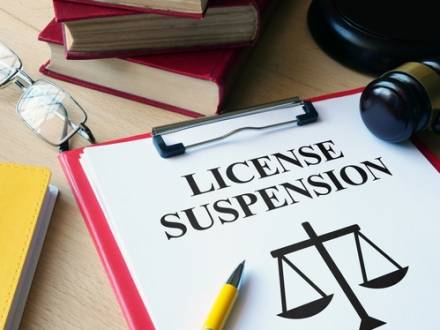 Illinois does not wait for a conviction to take action against your license, even for a first-time DUI offense. As of 2026, Illinois DUI law still allows driving privileges to be suspended shortly after an arrest through an administrative process that is separate from the criminal case. This happens often, but it typically isn’t permanent.
Illinois does not wait for a conviction to take action against your license, even for a first-time DUI offense. As of 2026, Illinois DUI law still allows driving privileges to be suspended shortly after an arrest through an administrative process that is separate from the criminal case. This happens often, but it typically isn’t permanent.
In a 2025 survey funded by the Illinois Department of Transportation, about 4.9 percent of Illinois drivers reported driving while impaired by alcohol or drugs in the prior 30 days. If you are facing this situation, speaking early with a Joliet, IL DUI defense lawyer can help you protect your ability to drive.
Stealthing in Illinois: Can You Be Charged with a Sex Crime?
 Across the country, including in Illinois, the line between consensual and criminal sexual activity has never been more closely examined. As lawmakers and courts reevaluate how sexual consent works in today’s world, this shift is most visible in "stealthing" cases. Stealthing relates to a consensual sexual encounter that could change when one partner secretly removes a condom mid-act.
Across the country, including in Illinois, the line between consensual and criminal sexual activity has never been more closely examined. As lawmakers and courts reevaluate how sexual consent works in today’s world, this shift is most visible in "stealthing" cases. Stealthing relates to a consensual sexual encounter that could change when one partner secretly removes a condom mid-act.
Prosecutors may rely on broad consent definitions to argue that nonconsensual condom removal constitutes sexual assault despite the fact that Illinois has no statute that names the behavior. The argument is that consent obtained under certain conditions is not consent once those conditions are removed.
So, a defendant could face serious felony charges from an encounter that began consensually. If you find yourself facing sexual assault charges (720 ILCS 5/11-1.20) after being accused of stealthing, it is essential that you speak to a highly experienced Will County, IL criminal defense lawyer as quickly as possible to get ahead of the charges.
What Are the Consequences of Violating an Illinois Protective Order?
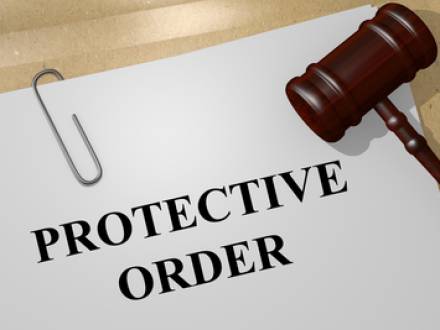 Although many people believe that violating an Illinois Order of Protection is not that big of a deal, in fact, it is a criminal charge that can bring jail time, heavy fines, and long-term consequences. While some people are aware they are violating an order of protection and are too frustrated or angry to care about the consequences, others may have simply misunderstood the scope of the order of protection.
Although many people believe that violating an Illinois Order of Protection is not that big of a deal, in fact, it is a criminal charge that can bring jail time, heavy fines, and long-term consequences. While some people are aware they are violating an order of protection and are too frustrated or angry to care about the consequences, others may have simply misunderstood the scope of the order of protection.
Something as simple as an accidental encounter, a text message apologizing to the alleged victim, or a social media post can potentially trigger an arrest. Illinois courts treat protective orders as court mandates rather than personal agreements. Any breach of an order of protection can lead to criminal contempt or misdemeanor or felony prosecution under 720 ILCS 5/12-3.4.
If you are charged with violating an order of protection, you must understand how serious the violation may be and what defenses exist. Consulting with a knowledgeable Will County, IL criminal defense lawyer early in the process can significantly increase your chances of a favorable outcome.
Illinois Geofence Warrants: How Police Use Your Location Data
 In Illinois, as with many states, prosecutors and law enforcement agencies are using "geofence warrants" to investigate crimes. Unlike traditional warrants that target a specific suspect, geofence warrants cast a much wider (digital) net. A geofence warrant requires a company like Google to turn over location data from every device within a defined timeframe and area.
In Illinois, as with many states, prosecutors and law enforcement agencies are using "geofence warrants" to investigate crimes. Unlike traditional warrants that target a specific suspect, geofence warrants cast a much wider (digital) net. A geofence warrant requires a company like Google to turn over location data from every device within a defined timeframe and area.
Obviously, law enforcement sees this as a powerful investigative tool, but others warn that geofence warrants not only threaten privacy but also risk pulling innocent people into criminal investigations. If you were questioned about a criminal offense based only on a geofence warrant, it is essential to speak to a knowledgeable Joliet, IL criminal defense lawyer as quickly as possible.
Understanding Geofence Warrants
A geofence warrant identifies individuals who were at a specific location during a specified time frame related to a crime. Law enforcement defines a virtual boundary, or geofence, around a crime scene, then asks major companies to provide a list of devices that were in that area during that time.
Does Delayed Reporting Impact an Illinois Sexual Assault Case?
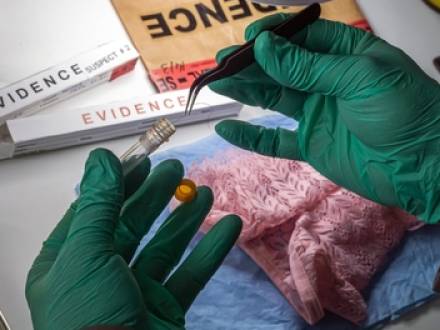 Under certain circumstances, sexual assault charges may be filed days, weeks, or even years after an alleged incident. This means there may be no immediate police report, no early witness statements, and no medical exam performed soon after the alleged incident. When delayed reporting occurs, serious challenges can be raised in court, even though prosecutors will almost certainly argue that delayed reporting is common among sexual assault victims.
Under certain circumstances, sexual assault charges may be filed days, weeks, or even years after an alleged incident. This means there may be no immediate police report, no early witness statements, and no medical exam performed soon after the alleged incident. When delayed reporting occurs, serious challenges can be raised in court, even though prosecutors will almost certainly argue that delayed reporting is common among sexual assault victims.
The job of the criminal defense attorney is to highlight the problems delayed reporting creates for the defendant in terms of fairness, evidence, and accuracy. If you are facing delayed reporting of sexual assault charges in Illinois, the penalties for a conviction are severe and lifelong. An experienced Joliet, IL criminal defense attorney will advocate for your rights and your future from start to finish.
About Delayed Reporting in a Sexual Assault Case
In the state of Illinois, an alleged victim of sexual assault (Texas Penal Code Section 22.011) can report the crime at any time. As of 2019, Illinois became the eighth state to eliminate the statute of limitations for prosecuting felony criminal sexual assault and sexual abuse cases. This means that victims can file charges against the alleged perpetrator at any time, regardless of when the assault occurred. Older cases that occurred before the change in the law may still be subject to the previous statutes of limitations.
What Happens When School Bus, City Bus, and Other Public Drivers Face DUI Charges?
 DUI charges are always serious in Illinois, but when the driver operates a school bus, city bus, or other public transportation vehicle, prosecutors pursue cases aggressively and often seek to make examples out of the driver. Throughout Illinois, these cases draw community attention because they involve passengers who are often young children and who trust the driver to be impeccably safe in their behavior. The law recognizes this heightened responsibility by imposing stricter rules and harsher penalties on bus drivers accused of driving under the influence.
DUI charges are always serious in Illinois, but when the driver operates a school bus, city bus, or other public transportation vehicle, prosecutors pursue cases aggressively and often seek to make examples out of the driver. Throughout Illinois, these cases draw community attention because they involve passengers who are often young children and who trust the driver to be impeccably safe in their behavior. The law recognizes this heightened responsibility by imposing stricter rules and harsher penalties on bus drivers accused of driving under the influence.
If you are a professional driver facing DUI charges, your career, reputation, and freedom are at risk. Fortunately, our Will County commercial DUI defense attorney is familiar with local courts and can provide defense strategies that account for the unique challenges of these cases.
How Does Illinois Define DUI for Bus Drivers?
As of August 2025, Illinois law continues to strictly regulate DUI for commercial drivers under 625 ILCS 5/11-501, with penalties that can be life-changing. Illinois applies tougher standards to drivers of commercial vehicles, including school buses. Under 625 ILCS 5/6-500 et seq., any driver with a Commercial Driver’s License (CDL) is held to a lower blood alcohol concentration (BAC) limit than non-commercial drivers.
When Is a DUI a Felony in Joliet, IL?
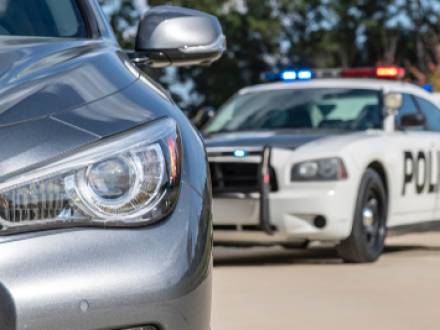 Facing a basic first-time DUI charge in Illinois is stressful enough, but many drivers do not realize that a DUI can escalate from a misdemeanor to a felony under certain circumstances. In Illinois, the difference between a misdemeanor and a felony DUI is not just a matter of severity. It can change the course of your life.
Facing a basic first-time DUI charge in Illinois is stressful enough, but many drivers do not realize that a DUI can escalate from a misdemeanor to a felony under certain circumstances. In Illinois, the difference between a misdemeanor and a felony DUI is not just a matter of severity. It can change the course of your life.
Fortunately, you have options and with an experienced local Will County, IL felony DUI defense lawyer, you can work to protect your future. Call Law Office of Eric J. Blatti, P.C. today to go over your case and take the next steps.
What Turns a DUI Into a Felony in Illinois?
Most first-time DUI offenses in Illinois are classified as misdemeanors. However, under Illinois law (625 ILCS 5/11-501), certain factors automatically elevate a DUI to a felony, referred to as aggravated DUI.
Double Jeopardy: Facing Firearm and Drug Charges in Illinois
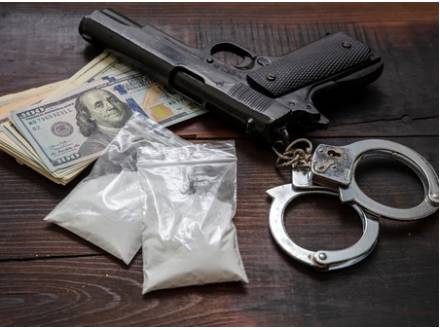 Federal agents raided a home in the suburb of Frankfort, IL, last week, charging the owner of the home and his girlfriend (who lived across the street in an apartment) with running a massive fentanyl and cocaine operation. In addition to the home, the man’s storage unit in Alsip was raided. Drugs, weapons, and cash were found in the storage unit. The complaint stated that the girlfriend’s apartment was being used as a drug lab.
Federal agents raided a home in the suburb of Frankfort, IL, last week, charging the owner of the home and his girlfriend (who lived across the street in an apartment) with running a massive fentanyl and cocaine operation. In addition to the home, the man’s storage unit in Alsip was raided. Drugs, weapons, and cash were found in the storage unit. The complaint stated that the girlfriend’s apartment was being used as a drug lab.
After suspicions that the two were running a drug operation, a hidden camera was set up in a flowerpot outside the woman’s third-floor apartment. At one point, the man left the apartment with a comforter that contained 1.5 kilograms of fentanyl and 850 grams of cocaine. A cache of firearms was also found with money and drugs at the man’s house. In the state of Illinois, facing a drug offense or a firearm offense is serious, but both charges together significantly escalate the legal penalties.
What Are the Consequences of a Hate Crime Enhancement?
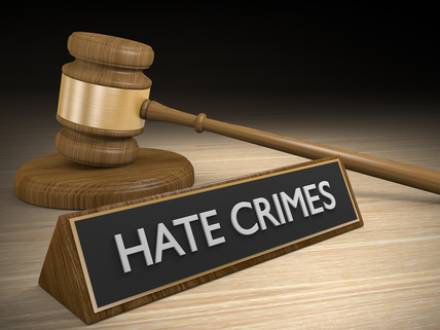 An Anti-Defamation League news report found that hate and extremism incidents are up across the entire state. These incidents include actual hate crimes as well as intimidation, largely against LGBTQ, Black, Muslim, Jewish, and immigrant populations. For example, between 2020 and 2023, there were 23 hate-related incidents in Peoria County, although only one was considered an actual hate crime.
An Anti-Defamation League news report found that hate and extremism incidents are up across the entire state. These incidents include actual hate crimes as well as intimidation, largely against LGBTQ, Black, Muslim, Jewish, and immigrant populations. For example, between 2020 and 2023, there were 23 hate-related incidents in Peoria County, although only one was considered an actual hate crime.
Under the Illinois Statute, a hate crime is defined as a crime committed because of another person’s "race, color, creed, religion, ancestry, gender, sexual orientation, physical or mental disability, or national origin." All hate crimes have an underlying basis of holding a preconceived, negative opinion about an entire group of people, yet not every incidence of bias can be charged as a hate crime.
Have You Been Charged with an Illinois Gang-Related Offense?
 In January of this year, a Springfield, IL man was sentenced federally to 180 months in prison, followed by 10 years of supervised release for his role in a widespread drug conspiracy that involved the Boss Playas, a local street gang. Under the Illinois enhancement of penalties for gang-related crimes, the man could have potentially received life in prison.
In January of this year, a Springfield, IL man was sentenced federally to 180 months in prison, followed by 10 years of supervised release for his role in a widespread drug conspiracy that involved the Boss Playas, a local street gang. Under the Illinois enhancement of penalties for gang-related crimes, the man could have potentially received life in prison.
In 2023, Chicago gangs were suspected of being behind 1,808 crimes reported across the city, with more than one in five homicides being attributed to gang activity. Gang-related offenses in the state can have exceptionally severe penalties that can impact your life for a very long time. Under 720 ILCS 5/25-1, a person commits a gang-related offense when he or she actively participates in, aids, or abets the commission of a crime by a criminal street gang.







